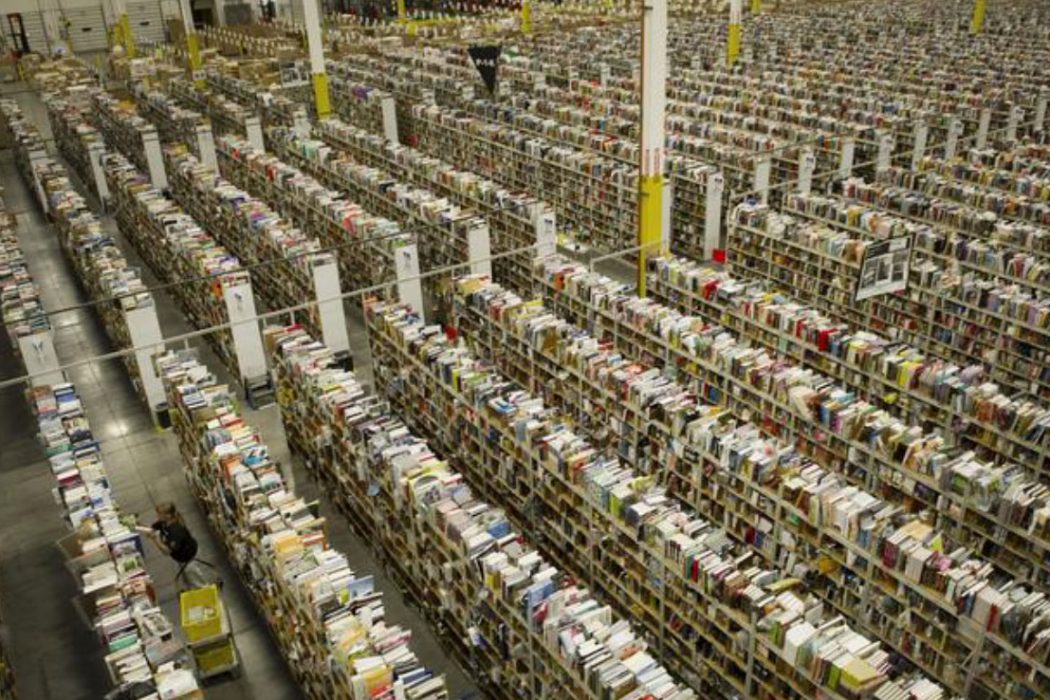Dear Friends,
We are grateful to all of you who have been supporting us by purchasing CPL Editions book. While for some years we offered the option of purchasing them through Amazon, this month, we have decided to discontinue our Amazon sales. All of our books will continue to be available as paperbacks and ebooks through our website. Institutions and libraries will also be able to purchase our books through Casalini Torrossa.
There are several reasons for this decision and we wish to share some of them with you.
In much of the world today, entering a residential building means being confronted by an ominous presence: an ever-growing mountain of cardboard boxes labeled Amazon.
Amazon has entered our lives and shaped much of our shopping experiences. Regardless of what we think of this publicly traded company, we must ask ourselves if it is providing adequate service and exposure to us as a small independent publishing house.
Since its humble, if visionary beginnings as an online bookseller back in 1995, Amazon has become the largest online retailer and the most valuable public company in the world. It still claims to be the “Earth’s biggest bookstore,” while in reality, it has never been a “bookstore” at all.
Through its user-friendly interface, speed of delivery, mergers, and acquisitions, Amazon has established a dominant and nearly monopolistic position in online sales of almost any kind of goods. Yet selling books is not the same as selling any other type of product. For us and many other independent publishing houses, bookselling is a specific mixture of cultural service and commercial enterprise. As such, it has specific rules that do not conform to the ambitions and strategies of an “everything store.”
Amazon’s anticompetitive strategies threaten independent booksellers (as well as brick and mortar businesses of all kinds). It makes it difficult to maintain our inventory available at a price that covers production costs and is affordable to all readers. Engaging in this competition ultimately eliminates the possibility to produce anything that is not destined to quick consumption and replacement.
We are also concerned that Amazon’s strategy is made possible by substandard working conditions of their employees and tax practices that further corrode social services. Not even the current pandemic, which has given Amazon unforeseen advantages over its competitors, has been seized as an opportunity to correct some of its most unethical practices.
“In Europe and in America, publishing has a long tradition as an intellectual and politically engaged profession. Publishers have always prided themselves on their ability to balance the imperative of making money with that of issuing worthwhile books,” wrote André Schiffrin in his still relevant The Business of Books in 2000. Today we see a double trend: on the one hand, a rapid move toward the acquisition of the largest publishing companies by “media companies” whose interest is strictly in making profits, and simultaneously, the “resistance” of small independent publishers who treasure the cultural efficacy of books as instruments of knowledge and debate.
While debates on the future of the printed book (as well as ebooks and audiobooks) continue inconclusively in the media, in the United States, according to the Association of American Publishers, book industry sales amount to $5.7 billion per year (with revenues of 1.4 billion). Yet as books are seened and sold as “commercial products,” the cultural relevance is declining. For example, the quantity and quality of book reviews in the mainstream media have declined dramatically for decades. In 1949 the average issue of the New York Times Book Review was sixty-four pages long and had a full-time staff. In 2020, the number of pages has shrunk by about 50%, and as of 2015, all review critics are freelance, since the NYTBR no longer has staff critics.
In the small (yet growing) field of Italian Jewish Studies, we wish to continue to produce books at a sustainable price and stimulate debate around them. Selling directly or through small publishers’ networks makes this possible. We hope that our readers will appreciate our concerns and continue to buy our books.
Image: Bloomberg media









